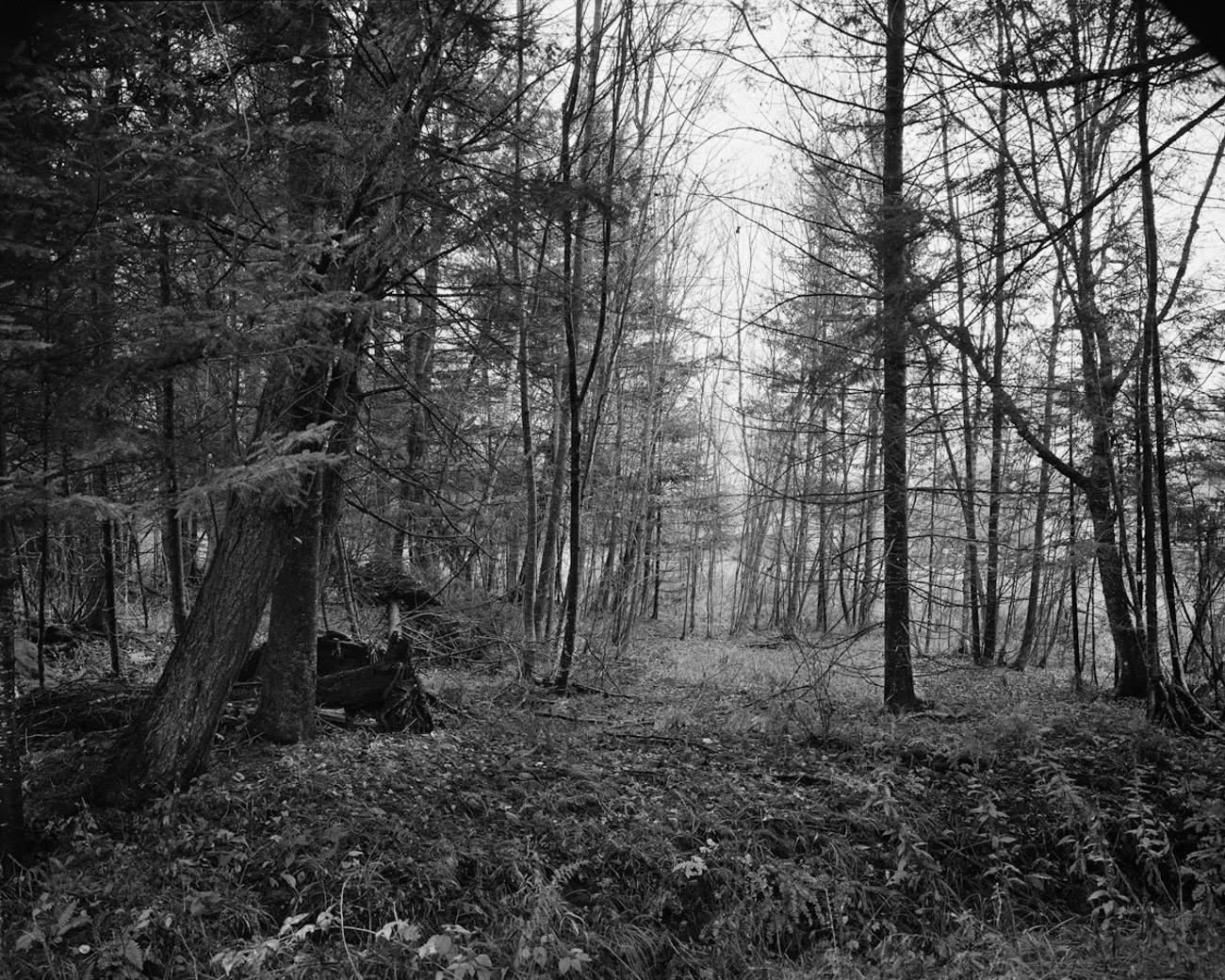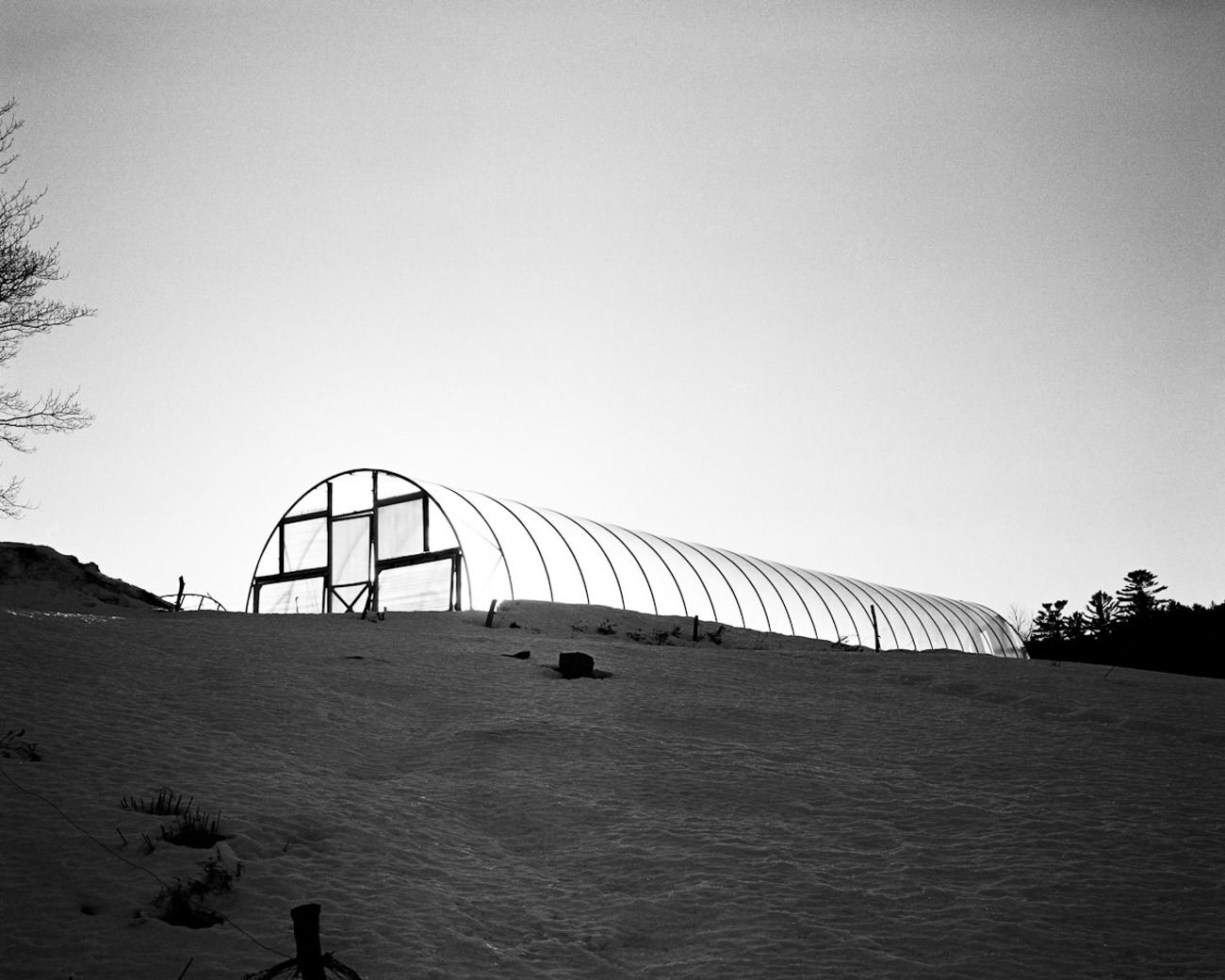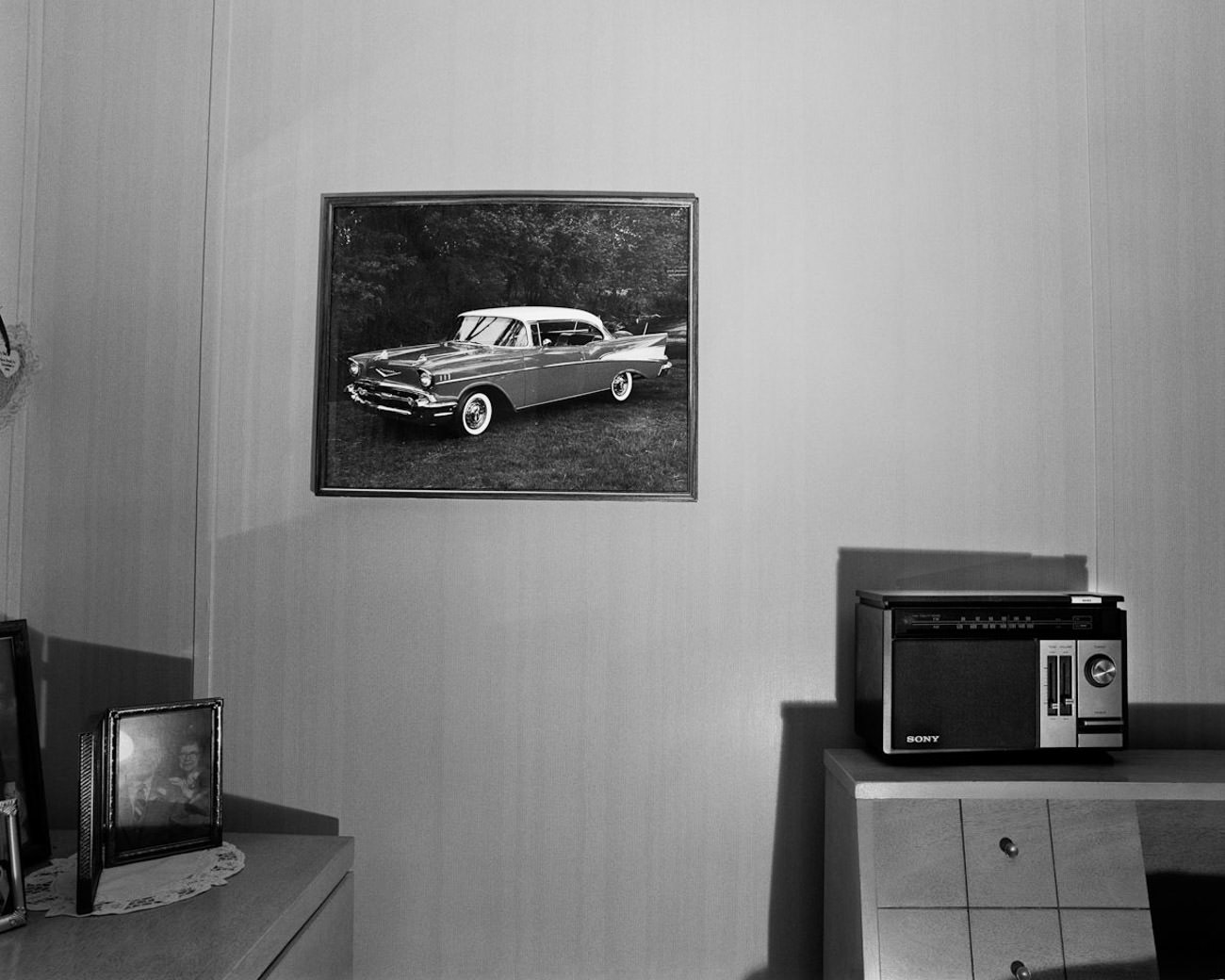For the past two years, Frost has been making large-format photographs in and around the small town of Groton, Vermont, the town where his relations have lived for more than two hundred years. His father left to join the Navy in the 1970s, and, growing up in a military family, Frost moved quite frequently and never established a place he considered home. Partly because of this nomadic upbringing, The Northeast Kingdom, the northern-most counties in Vermont, held a mythical sense of history for Frost, having been romanced by the stories of his father’s youth. “I always imagined that it would be this beautiful place, where kids ride their bikes to the town store and everyone knows each other, like something out of a Hardy Boys book.”
Two years ago, after moving to upstate New York, he finally made it to Vermont. It was the first time he had felt a deep connection, a sense of real belonging, to a place. Since then, Frost has travelled back frequently, 8 x 10 view camera in tow, looking for his roots. Making photographs with a view camera is slow and gradual, much like farming or writing, the process seems to compliment the way of life in small-town Vermont.
For his first solo exhibition, Frost will present eleven large-scale black and white photographs from his travels to Vermont over the last two years. They focus on the collision of myth, place, and the notion of perceived reality. The photographs speak to the balancing act we undertake as we distinguish between what we imagine elements of our history to be and what they really are.
Through precisely considered shifts in tonality, light, and composition, Frost transcends the banal moments of everyday life in this small town and turns them into subtle and poignant vignettes, reflecting a place he had built in his mind over decades. The photographs earnestly explore the beauty of rural life, while simultaneously questioning its viability.





